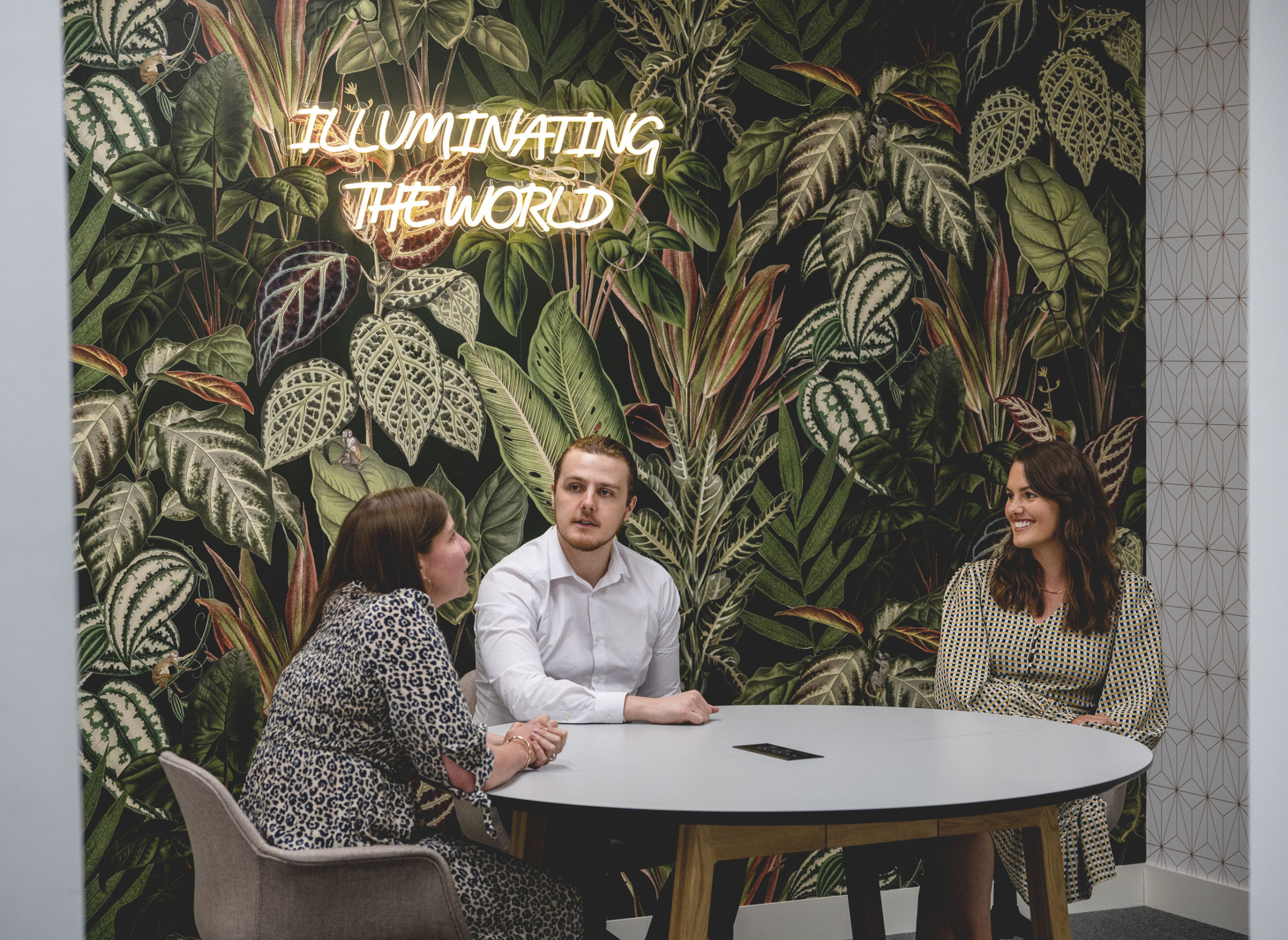
This year we’re celebrating 60 years of IFF. As with any big milestone, it’s given us opportunity to reflect – not just on how far we’ve come, but on what we’ve learned along the way.
We’re a very different company now, to what we were back then. But what has remained consistent is our culture of continuous learning. With a desire to make sure that what we deliver, and the way in which we work, is supporting better informed decisions.
As part of this reflection, we asked members of the team to share their learning from over the years. What’s surprised them? What’s challenged them? And what nuggets of wisdom would they pass on?
Here’s what they told us…
Making sense of change
Research today is increasingly shaped by complexity—whether it’s the pace of technological change, shifting public expectations, or the influence of political and social context.
As researchers, we’re not just gathering data; we’re helping clients navigate uncertainty, nuance, and priorities. One of the lessons we’ve learned is that good research doesn’t just provide answers—it helps people make sense of change. And this can vary from sector to sector.
“As public concern around climate change, energy security, and affordability continues to grow, the energy and environment sector has become more visible—and more complex.” says Environment and Energy Sector Head Andrew Skone- James.
“In a fast-moving and sometimes polarised space, research helps bring clarity—and ensures that progress is guided by insight, not assumption.”
It’s the same in higher education, where balancing national trends with local realities means you need more than just observation. “Working on large-scale studies has helped me understand the sector’s structural challenges,” says Catherine Turner, Higher Education Sector Head. “But it’s through institution-specific projects that I’ve seen how diverse the sector really is—and how much context matters when trying to make sense of change.”
Learning is a system
Providing people with the right skills and tools to work effectively is crucial. But learning shouldn’t just be confined to training sessions or courses. Just as important is creating a culture where learning is part of everyday working life—something that feels natural, reachable, and continuous.
“Leaning & Development should be like water flowing through a system of pipes—it should go where it’s needed.” says Gill Stewart, our Learning & Development Director, “That means creating a space where knowledge is accessible, timely, and seamlessly integrated into our work. Our team should be able to turn on the nearest ‘tap’ and get what they need without fuss.”
A prime example of this is through our Operations team. “Data underpins everything we do” says Sam Morrisroe, Associate Director of Operations. “It’s a fundamental driver of our success. By using data to spot patterns and track progress, learning becomes part of the everyday rhythm—quietly shaping how we grow, educate, adapt, and improve.”
The importance of clear communication
As with any project work, unexpected challenges are part of the job. But what makes a difference is how to approach them.
Whether it’s navigating a tricky fieldwork phase or adapting to sector-wide changes, it’s crucial to have open, timely communication—with our clients and with each other.
Andrew explains: ‘“Poor communication can derail a project, a process, even a career. Knowing how to set expectations, choose the right tone and platform, and avoid misinterpretation is vital. It’s a fundamental skill – one a researcher needs to have in their armoury.”
And as Director Alistair Kuechel reflects, when we have encountered challenges, it’s about opening up a discussion. “It’s all about communication with the clients we’re working with,” he says. “Seeing challenges as shared problems we can work through together is key to overcoming them.”

Tech needs a human touch
Our IT team has embraced the opportunities that come with new technology, but always with a focus on making sure any development is inclusive and accessible to everyone.
“IT leadership is as much about relationships and communication as it is about systems,” according to Nigel Byrne, our IT Director. “By using plain language, encouraging teamwork across departments, and bringing everyone along on the journey, we ensure that we’re inclusive, and not intimidating.”
“Keeping up with the current pace of change in technology can be challenging, especially with AI in the picture. Within IT we try always look to at ways to improve, and always try to support each other and our clients.”
Nicola Wildash, our Innovation & Efficiencies lead, echoes this approach. “We’re great at generating ideas and exploring options for improving how we work,” she says. “But sometimes the best way to move forward is to get something live and learn from how it works in practice—less talk, more action. To support that, we’ve developed a rollout plan that helps us think early on about who a new process might affect, what kind of behaviour change it involves, and what level of scoping, communication and training is really needed.” It’s a practical, people-first approach that ensures innovation is mindful and grounded in real use.
Keeping ourselves curious
There’s no finish line when it comes to learning. Whether it’s adapting to new tools, refining how we work together, or simply listening more closely.
What’s kept us moving forward isn’t just our expertise, but our human-first approach and openness—to feedback, to change, and to each other.
There’s no doubt that there’ still plenty more lessons that’ll come our way in the next 60 years. And we look forward to developing from each with the same curiosity, adaptability and open-mindedness that brought us this far.